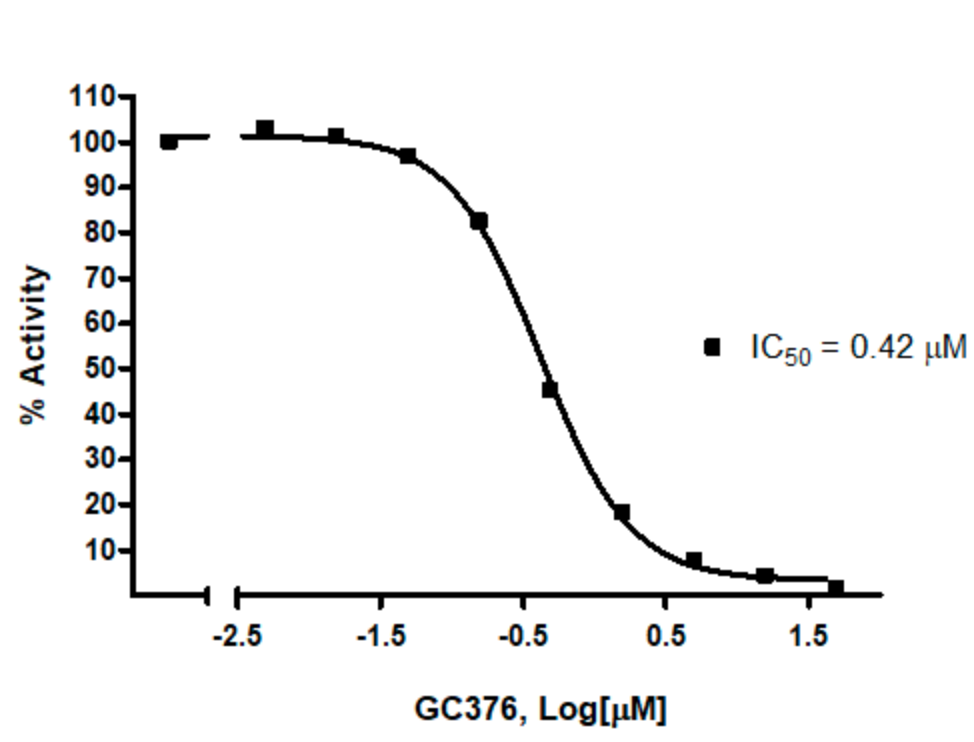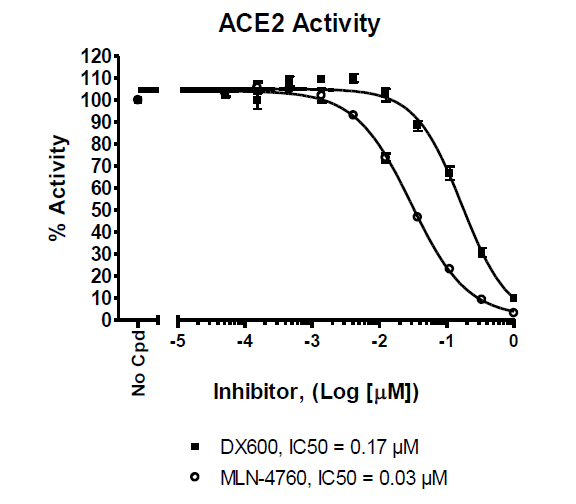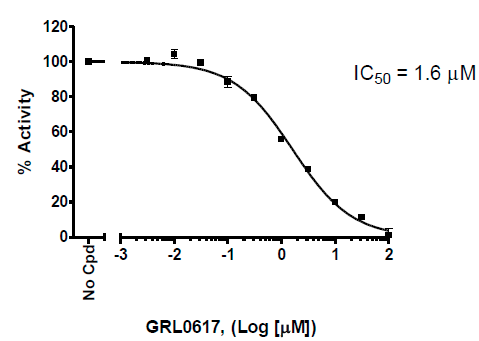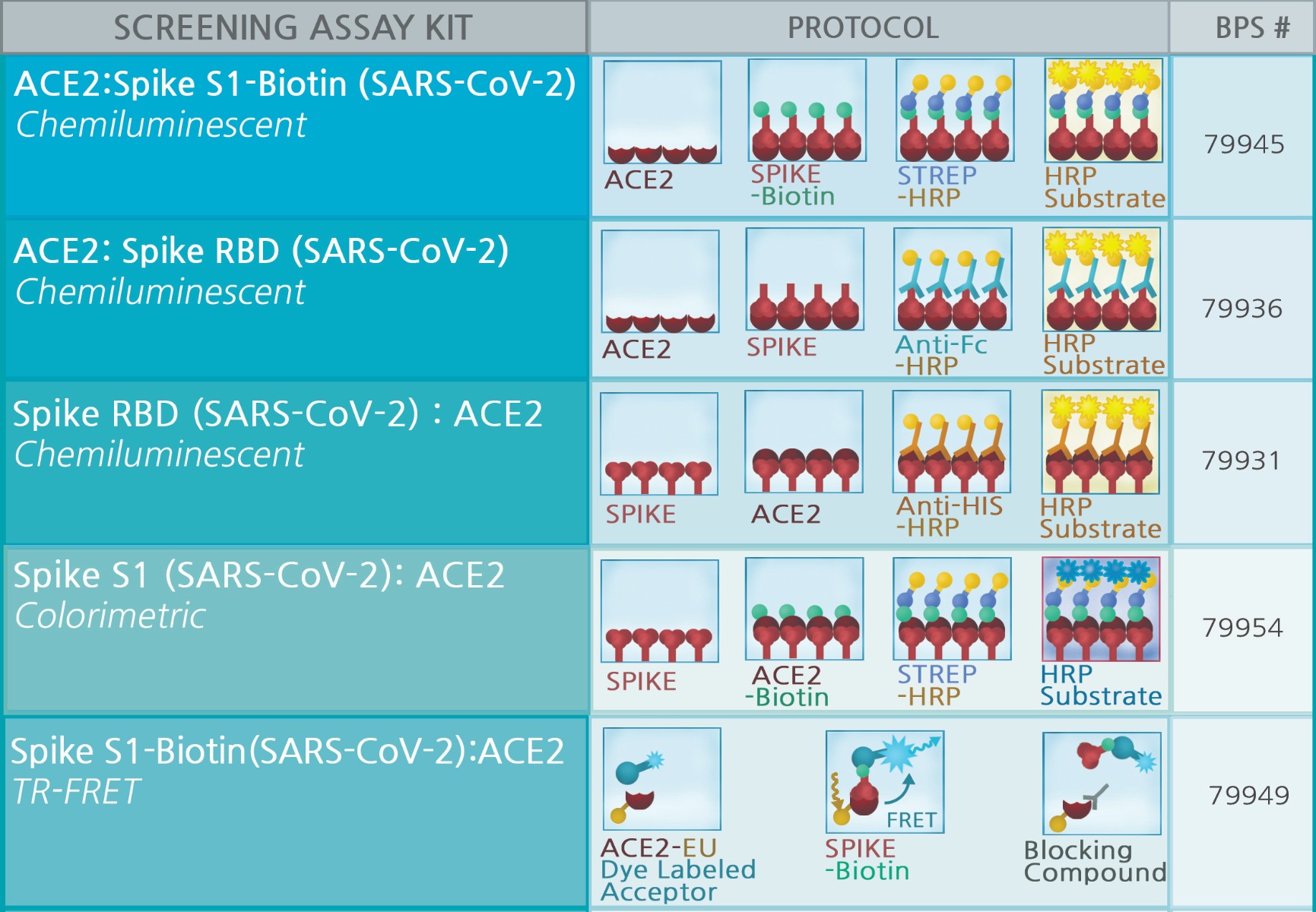Proteases as Targets for SARS-CoV-2 Treatment
Researchers have shown that proteases are actively used by SARS-CoV-2 for it’s entry and replication into human cells. To support research on this topic, BPS Bioscience provides a range of screening kits to identify inhibitory compounds directed against these human and viral proteases.
SARS-CoV-2’s mechanism of entry and replication into human cells is now well known and described by the scientific community. The penetration steps can be divided in two parts. First, SARS-CoV-2 interacts with human cells, mostly from the respiratory tract, by binding between the RBD domain of it’s spike protein (localized in S1 subunit), and human angiotensin converting enzyme 2 (ACE2). Following these attachment steps, the two human proteases furin and TMPRSS2 cleave the spike protein, and the truncated S2 subunit facilitates fusion of viral and cellular membranes, bringing the virion into the cell.
In the cell, the viral RNA is translated to encode the viral replicase gene and two large polyproteins that are processed by viral proteases Papain-like protease 2 (PL2pro) and 3C-like protease (3CLpro, also referred to as main protease, Mpro). These cysteine proteases cleave the polyproteins into 15–16 non-structural proteins involved in viral RNA synthesis and replication.
Many different therapeutic strategies against SARS-CoV-2 are being studied by researchers, such as:
- Immunomodulatory therapies to avoid overproduction of early response proinflammatory cytokines (also called the cytokine storm) observed in many COVID-19 infected patients
- Passive immunization of COVID-19 patients with sera from COVID-19 recovered patients and containing neutralizing monoclonal antibodies against SARS-CoV-2
The development of vaccines and antiviral drugs that can block the coronavirus infection and replication into human cells appears currently as the most studied solution. Due to their critical activities in viral replication and fusion with cellular membranes, the enzymes 3CLPro, PLPro, Furin, TMPRSS2 and ACE2 represent interesting therapeutic targets for new anti-coronavirus treatment. BPS Biosciences screening kits are used to easily and quickly identify new inhibitory compounds, offers important resources for research in this area.
BPS Bioscience continues to be a leader in providing products and services to help meet the urgent need for new drugs and vaccines to treat and prevent COVID-19. BPS Bioscience has quickly developed an entire portfolio of recombinant proteins, unique assay kits, pseudovirions, antibodies, and lentiviruses to help researchers understand the pathogenesis of viral disease and to advance research and development of therapeutic drugs and vaccines. In addition to BPS Bioscience's coroanvirus portfolio, we also offer an array of protease research products including assay kits and recombinant proteins as well as protease screening services. Visit our website frequently to discover our newest product and service offerings.
3CL Protease (SARS-CoV-2) Assay Kit

The 3CL Protease Assay Kit is designed to measure 3CL Protease activity in a convenient 96-well plate format. Composed of purified 3CL Protease, a fluorogenic substrate, and 3CL Protease assay buffer for 100 enzyme reactions, this kits will enable you to easily screen and profile compounds with an inhibitor, as shown with GC376 (included as positive control in the kit) known as a 3CL protease inhibitor.
ACE2 Inhibitor Screening Assay Kit

The ACE2 Inhibitor Screening Assay Kit is designed to measure the exopeptidase activity of ACE2 for screening and profiling applications. Build by BPS Bioscience in a 96-well format, with purified ACE2 and its fluorogenic substrate, this kits is useful for studying enzyme kinetics and screening small molecule inhibitors and antibodies for drug discovery and HTS applications.
Papian-like Protease (SARS-CoV-2) Assay Kit: Protease Activity

The Papain-like Protease (SARS-CoV-2) Assay Kit: Protease Activity. The Papain-like Protease Assay Kit: Protease Activity is designed to measure Papain-like Protease activity for screening and profiling applications, in a homogeneous assay with no time-consuming washing steps in a convenient 96-well format. Composed of purified Recombinant Papain-like Protease, PLPro, PLpro Substrate, PLPro assay buffer for 100 enzyme reactions, this kits will enable you to easily screen and profile compounds with an inhibitor, as shown with GRL0617 (included as positive control in the kit) known as a 3CL protease inhibitor.
Additional Assay Kits

Contact us to learn more about how BPS Bioscience can help advance your coronavirus related research.
References
- “Structure of dimeric full-length human ACE2 in complex with B0AT1″, Yan, R., et al. BioRxiv. 2020 Feb 18; in press. doi:10.1101/2020.02.17.951848
- “SARS-CoV-2 Cell Entry Depends on ACE2 and TMPRSS2 and Is Blocked by a Clinically Proven Protease Inhibitor” – Hoffmann et al., 2020, Cell 181(2):271-280.e8. doi:10.1016/j.cell.2020.02.052
- “TMPRSS2 and furin are both essential for proteolytic activation and spread of SARS-CoV-2 in human airway epithelial cells and provide promising drug targets” – Bestle, D., et al. BioRxiv. 2020. Preprint. doi:10.1101/2020.04.15.042085
- “Crystal structure of SARS-CoV-2 main protease provides a basis for design of improved α-ketoamide inhibitors” – Zhang, L. et al. 2020. Science 368(6489): 409-412.
doi: 10.1126/science.abb3405 - “The metalloproteinase ADAM10: A useful therapeutic target?” – (Wetzel, S. et al. 2017. Molecular Cell Research doi.org/10.1016/j.bbamcr.2017.06.005







